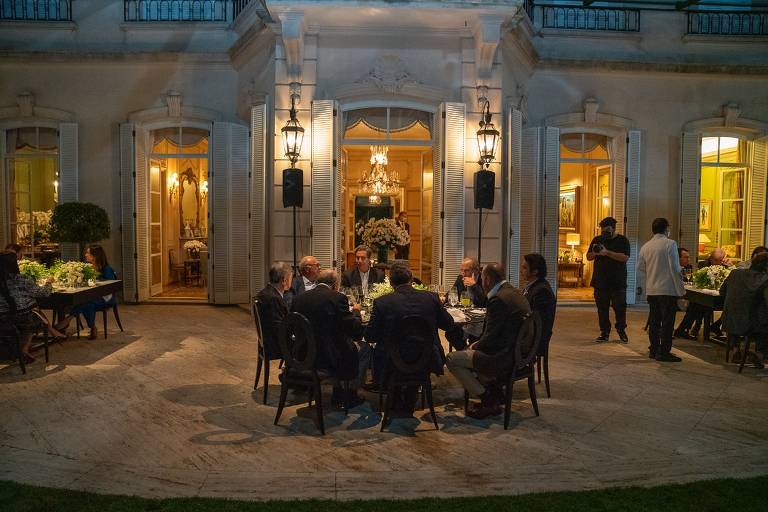[ad_1]
NEW YORK, May 09 (IPS) – Dr. Alon Ben-Meir, a retired professor of international relations at the Center for Global Affairs at New York University (NYU), taught courses on international negotiation and Middle Eastern studies for over 20 years.A revised Iran nuclear deal based on the 2015 JCPOA could provide the basis for a new Biden administration strategy that would limit Iran’s nuclear program to peaceful purposes and ensure that Tehran’s public pronouncement that it is not seeking to acquire nuclear weapons becomes a de facto reality.
Righting the Wrong
Regardless of how flawed the 2015 Joint Comprehensive Plan of Action (JCPOA; aka Iran nuclear deal) may be, it was by far better than having no deal. Trump’s withdrawal from the deal was most unfortunate as it did nothing but bring Iran ever closer to the nuclear threshold. Despite its public pronouncements to the contrary,
Tehran remains determined to acquire nuclear weapons at some point in the near future; however, it can change its position once it returns to the original deal and together with the US builds upon it. Nonetheless, to change the dynamic of the conflict and determine what it might take to modify Iran’s position, we need to better understand what is behind its nuclear ambitions.
Thus, it is important to first examine the clergy’s mindset and their motivation to acquire nuclear weapons in spite of Western powers’ objections and irrespective of the weighty, if not crippling sanctions that have been imposed on the country over the years.
With a long and proud history, vast natural and human resources (with a population of more than 90 million), rich culture, and geostrategic location, Iran feels that it is entitled to become the region’s hegemon where it can exert considerable influence.
Since the 1979 revolution, Iran has felt threatened and isolated, living in fear of a US-orchestrated regime change. As such, Iran commits nearly $25 billion of its annual budget to the military (an increase of 11 percent from 2020, making it the 14th largest military spender in the world) and over the years it has built a powerful conventional armed forces led by the Islamic Revolutionary Guard Corps (IRGC).
Given however the limitations of Iran’s conventional military power projection, the next phase of its national defense doctrine was the development of a nuclear weapons program designed to achieve three main objectives.
Why Iran seeks nuclear weapons
First, Iran’s determination to realize its ambition of regional hegemony would be substantially augmented by the possession of nuclear weapons. Iran has no intention of threatening or using such weapons against any of its adversaries—especially Israel, which is in possession of second-strike nuclear capability that could wipe out half the country—but the mere fact of being a nuclear power will give it the prestige and regional sway that it desires.
Second, by acquiring nuclear weapons, Iran wants to establish the doctrine of mutual assured destruction (MAD) and thus deter any nuclear power, such as the US or Israel, from attacking it, knowing full well that no country with nuclear weapons has been attacked since World War II.
India and Pakistan, who fought three conventional wars over Kashmir, have refrained from waging another war since they acquired nuclear weapons. The same can be said about North Korea, and if Ukraine kept its nuclear arsenals, Russia very likely would not have dared to invade it.
Third, as a predominantly Shiite state, Iran seeks to be on par with Sunni Pakistan and Jewish Israel, and cannot allow itself to be overshadowed by either. Moreover, Iran would feel confident that it can shield itself from regime change orchestrated by the US in particular.
Iran’s nuclear weapon strategy
Although Iran has time and again stated that it has no intention of acquiring nuclear weapons and may remain true to its public narrative, based on solid intelligence evidence, Iran is seeking to achieve nuclear latency and produce enough weapons-grade uranium to construct three to four nuclear weapons in short order.
However, it may well take Iran 18 months to two years to miniaturize a nuclear head to be fitted onto a ballistic missile.
Meanwhile, the clergy is prepared to sign off on a return to the original deal provided that their demands are met. This would include removing most if not all the sanctions to get the financial relief they desperately need, unfreezing tens of billions of dollars, and removing the IRGC’s militant arm, the Quds Force, from the US terrorist list, which Iran is insisting upon and should not be a deal breaker.
As things stand now, once Iran returns to the original deal, it will wait for the expiration of the sunset clauses in 2031 to resume its nuclear weapon program; the Iranians are known for their patience, and they feel that time and God are on their side.
For the Biden administration to address Iran’s concerns and dissuade it from taking the final leap to acquire deliverable nuclear weapons, it must develop a three-pronged strategy: a) change its public narrative and convey to the Iranian public that the US has no intention of undermining Iran’s sovereignty and national security; b) craft a renewed JCPOA, build on it, and help Iran to become a constructive member of the international community; and c) establish a regional security architecture that will include all the countries from the Gulf to the Mediterranean.
Changing the public narrative
How the Iranian government and people perceive the US’ intentions matters greatly in shaping their public opinion. Any bellicose statements and threats emanating from the US or Israel plays directly into the hand of the clergy, as they will use these adversarial pronouncements to show their public that the US is Iran’s foremost enemy.
In so doing they not only justify their enmity toward the US but also blame it for the economic hardship the public is experiencing. For the Biden administration to impact Iranian public opinion, it must refrain from using acrimonious rhetoric and make it clear by every possible means that the US holds no animosity toward Iran and is open to settle any and all disputes with the government peacefully and collaboratively.
It should be noted that even after 43 years of reign by the clergy, the majority of the Iranian population, especially the youth, remain Western-oriented and would like nothing more than to restore normal relations with the West, to where they can travel and study.
We should also remember that before the 1979 revolution, Iran was one of the closet allies of the US, and two or three generations has not changed the public’s Western-leaning cultural foundation. Similarly, seventy years of Soviet communist domination did not alter the eastern European countries’ political orientation, which sought to join the Western democracies immediately following the collapse of the Soviet Union.
Needless to say, changing public narratives in and of itself will not be sufficient – it must be accompanied by action and sincere efforts to create a new environment not only to lend credibility to the new approach but in fact change the dynamic of the conflict.
Building on the renewed JCPOA
For that to happen, the Biden administration ought to make it clear to Iran that by returning to the original deal it can benefit greatly, not only from the initial phase of lifting the sanctions and unfreezing tens of billions of dollars but also by building on the new deal through:
- 1. Beginning a process of normalizing relations between Washington and Tehran by establishing initial diplomatic relations;
2. Renouncing publicly any effort to seek regime change, which is a prerequisite for any kind of Iranian cooperation;
3. Starting trade relations between the two countries and supporting Iran in joining the World Trade Organization;
4. Committing to not undertaking military or cyber-attacks on Iran’s nuclear facilities as long as its nuclear program remains peaceful; and finally,
5. Creating a joint commission to address a host of conflicting issues to reduce tensions and build trust.
In return, Iran will be required first and foremost to end its nuclear weapons program and agree to unfettered and permanent monitoring of its nuclear facilities, stop threatening other countries, especially Israel, and cease its support of extremist and terrorist groups such as Hamas, Hezbollah, and Islamic Jihad.
Certainly, given that Israel is consistently threatened by Iran, it should be allowed to give its input regarding these issues through the US, without blowing its national security concerns out of proportion. Since Iran denies being engaged in any nefarious activity, the negotiation about these sensitive issues, including its cruise and ballistic missiles program, ought to obviously take place behind the scenes.
There will be many who would argue that such an approach amounts to nothing more than a pipe dream. They maintain that the Iranian government is religiously fanatic, politically radical, militarily aggressive with grandiose strategic ambitions, illogical, and a major destabilizing force in the region.
Indeed, anyone who listens to the clergy’s denunciations and condemnations of the US and Israel would concur that the Iranian regime is perhaps irredeemable and that only regime change would alter its behavior. One cannot dismiss this argument out of hand as Iran’s conduct in the region and beyond speaks for itself.
That said, the people of Iran want to grow, flourish, and live in peace, and the ruling clergy knows that they cannot achieve this as long as they remain economically hamstrung by sanctions while continuing to treat the US as a mortal enemy. Culturally, the Iranians are known to be calculating and strategically savvy.
To be sure, notwithstanding the leadership’s adversarial public posture and utterances against the US, they certainly prefer normal relations with America than perpetual enmity.
This however, should not preclude the US from pursuing a new Middle Eastern strategy that would effectively compel Iran to choose between two options: either to become a constructive player in the region or a perpetual enemy who must always be constrained by any means necessary, including the use of force.
Establishing a regional security architecture
As the Biden administration embarks on the process of reconciliation with Iran, it should concurrently begin discussions with its Middle Eastern allies—the six Arab Gulf states, Israel, Jordan, the Palestinian Authority, and Egypt—to form a regional security alliance.
Such an alliance is more likely to be established at the present than at any other time in the past, especially because of the Abraham Accords, where Bahrain and the United Arab Emirates in the Gulf, along with Sudan and Morocco, have normalized relations with Israel. The remaining Gulf states—Saudi Arabia, Kuwait, Qatar and Oman—are already collaborating with Israel on many fronts, especially on security and intelligence-sharing.
The purpose of such an alliance would be to challenge Iran’s regional ambitions and pose a veiled threat to its national security, compelling Iran to choose between two options. Iran can either gradually moderate its position and become a constructive player in and outside the region, or stick to its ambition to become a nuclear power once the new deal runs its course.
If Iran chooses the latter, the Biden administration should then consider building the infrastructure that would provide a nuclear umbrella to all member states of the alliance, something that was floated by Hillary Clinton when she ran for president.
This strategy may seem far-fetched and undoable simply because of the huge differences in perception and the ultimate objectives of each side. But then we have to admit that since the 1979 Iranian revolution, the enmity and distrust between the US and Iran has only deepened.
Indeed, if there was an opportunity to build on the original deal and create more constructive relations between the US and Iran, it was blown away by Trump’s withdrawal from the deal. This has only further deepened Iran’s distrust of the US, which predates the 1979 revolution and is rooted in the US-backed overthrow of the democratically elected Mosaddegh government in 1953, despite the fact that they continued to maintain good relations from 1953 to 1979.
After 43 years of continuing hostility, it is time for a new approach. Iran is a large and powerful country and is not going anywhere. It occupies one of the most strategic locations in the world and thus it cannot be simply ignored, or written off as an irredeemable enemy that responds only to the threat or use of force.
A return to the original deal offers a perhaps rare opportunity to open a new chapter in the relations between the US and Iran and bring an end to a consuming conflict that will otherwise continue to dangerously destabilize the region.
The US can now change the dynamic of the conflict by offering Iran a promising prospect for economic prosperity and growth while enhancing its national security, or be subject to constant sabotage, crippling sanctions, and potential military attacks on its nuclear facilities, as President Biden and Israel vowed to never allow Iran to become a nuclear power.
The US can make this overture not only because it has nothing to lose, but also because it can demonstrate resolute leadership and be ready to change course by offering a solution from a position of strength, even if it stands only a small chance of success.
Since Iran consistently denies having any ambition to acquire nuclear weapons, this strategy will allow it to forsake its nuclear weapons program without losing face, while leveraging constructively its vast potential as a major regional power.
IPS UN Bureau
Follow @IPSNewsUNBureau
Follow IPS News UN Bureau on Instagram
© Inter Press Service (2022) — All Rights ReservedOriginal source: Inter Press Service
[ad_2]
Source link


















